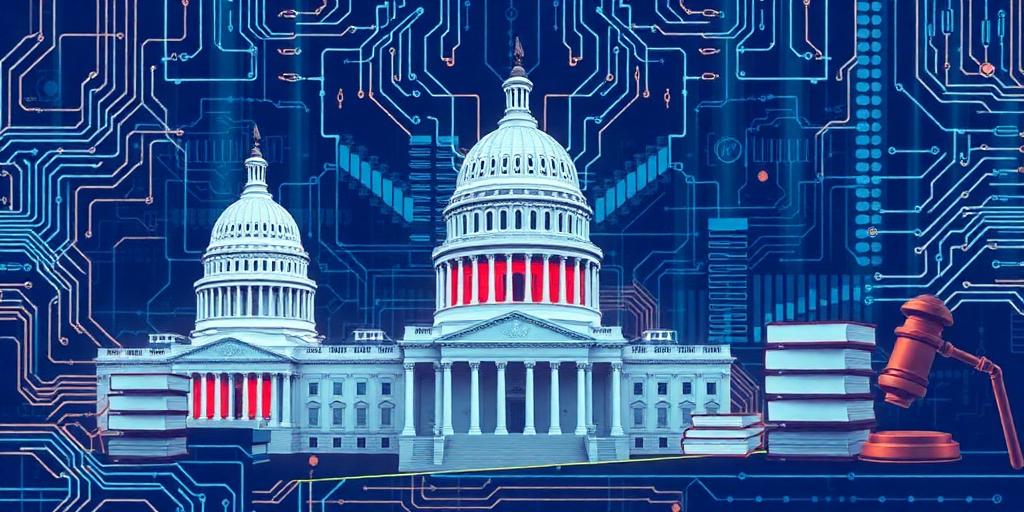The Role of AI in Policy Making
Artificial Intelligence (AI) is rapidly transforming numerous sectors, and policy making is no exception. Governments and organizations are increasingly exploring how AI can enhance efficiency, accuracy, and effectiveness in crafting and implementing policies. This post delves into the multifaceted role of AI in policy making, examining its benefits, challenges, and potential applications.
Enhancing Data Analysis and Insights
One of the most significant contributions of AI in policy making is its ability to analyze vast datasets quickly and accurately. AI algorithms can identify patterns, trends, and correlations that might be missed by human analysts. For example, AI can be used to analyze economic data to predict the impact of proposed tax policies or to assess the effectiveness of existing social programs.
- Predictive Analytics: AI algorithms can forecast future outcomes based on historical data, allowing policy makers to anticipate challenges and opportunities.
- Data Mining: AI can sift through large datasets to uncover hidden patterns and insights relevant to policy decisions.
- Sentiment Analysis: AI can gauge public opinion on policy issues by analyzing social media posts, surveys, and other forms of communication.
Improving Efficiency and Accuracy
AI can automate many of the routine tasks involved in policy making, freeing up human resources for more complex and strategic work. For example, AI-powered systems can be used to process applications for government services, reducing processing times and minimizing errors. Additionally, AI can help ensure that policies are applied consistently and fairly across different regions and populations.
Supporting Evidence-Based Policy Making
AI can play a crucial role in promoting evidence-based policy making by providing policy makers with access to reliable and up-to-date information. AI-powered tools can automatically collect and synthesize data from various sources, including academic research, government reports, and news articles. This can help policy makers make more informed decisions based on the best available evidence.
Challenges and Considerations
Despite its potential benefits, the use of AI in policy making also presents several challenges and considerations. One of the main concerns is the potential for bias in AI algorithms. If the data used to train AI models is biased, the resulting policies may perpetuate or even exacerbate existing inequalities. It is, therefore, crucial to ensure that AI algorithms are developed and used in a transparent and ethical manner.
- Data Privacy: AI systems often require access to large amounts of personal data, raising concerns about privacy and data security.
- Transparency and Explainability: It can be difficult to understand how AI algorithms arrive at their decisions, making it challenging to ensure accountability and fairness.
- Job Displacement: The automation of routine tasks through AI may lead to job losses in some sectors.
Examples of AI in Policy Making
Several countries and organizations are already using AI in various aspects of policy making. Here are a few examples:
- Healthcare: AI is being used to predict disease outbreaks, optimize resource allocation, and personalize treatment plans.
- Transportation: AI is helping to improve traffic flow, reduce accidents, and optimize public transportation systems.
- Education: AI is being used to personalize learning experiences, identify students at risk of falling behind, and automate administrative tasks.
- Criminal Justice: AI is being used to predict crime hotspots, identify potential offenders, and improve the efficiency of law enforcement.
The Future of AI in Policy Making
As AI technology continues to evolve, its role in policy making is likely to expand further. In the future, AI may be used to develop entirely new policy options, simulate the impact of different policies, and even automate the implementation of policies. However, it is essential to address the challenges and considerations associated with AI to ensure that it is used responsibly and ethically.
In conclusion, AI has the potential to transform policy making by enhancing data analysis, improving efficiency, and promoting evidence-based decision-making. However, policy makers must also be aware of the challenges and risks associated with AI, including the potential for bias, data privacy concerns, and job displacement. By addressing these challenges, we can harness the power of AI to create more effective, equitable, and sustainable policies.









